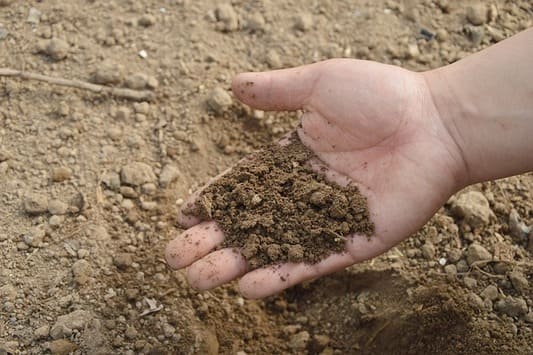Lawn Fertilizers: How to Choose and Apply the Right One

Would you like to have a green and healthy lawn in your garden?
Then you need to take good care of it!
And for that, it’s not just about watering and mowing. An important part is providing it with the right nutrients (fertilizer and fertilizers).
In this article, we will explore the different types of fertilizers available, their benefits, and how to choose the best one for our lawn according to its specific needs and the time of year.
Why is it important to fertilize the lawn?
The lawn, just like any other plant, needs a series of essential nutrients to develop properly.
Nitrogen (N), phosphorus (P), and potassium (K) are the three main elements that influence its growth, resistance, and coloration.
Without proper fertilization, the soil loses these nutrients over time, resulting in a weak lawn prone to pests and diseases.
A well-fertilized lawn not only looks greener and fuller but is also more resistant to trampling, drought, and extreme temperatures.
Types of fertilizers for the lawn
There are different types of fertilizers, each with specific characteristics and benefits.
Choosing the right one will depend on the lawn's needs and the soil's conditions.
We explain them to you.
1. Organic fertilizers
If you prefer natural methods, organic fertilizers are an excellent option.
They come from materials such as compost or manure and improve the soil structure in the long term. While their effect is slower, they provide lasting benefits and promote a healthy microbiome in the soil.
Some popular options include compost, worm humus, and well-decomposed manure.
These fertilizers are applied directly to the lawn in a thin layer and watered to help absorption.
2. Chemical fertilizers
Chemical fertilizers are formulated with specific concentrations of essential nutrients like nitrogen, phosphorus, and potassium, known as NPK.
Depending on the combination of these elements, they can be designed to promote growth, resistance, or flowering.
One of the main advantages of chemical fertilizers is their rapid absorption, which allows for quick results. But be careful, because excessive use can harm the soil.
If you use them, do so following the manufacturer's recommendations and avoid exceeding the recommended dose.
3. Liquid vs. granular fertilizers
Liquid fertilizers are applied diluted in water and are ideal for rapid absorption, perfect if you're looking for immediate results.
On the other hand, granular fertilizers are spread over the lawn and release nutrients gradually, reducing the frequency of application.
How to choose the best fertilizer for our lawn
Choosing the right fertilizer depends on several factors, such as the type of grass, soil conditions, and the time of year.
Based on your garden's characteristics
First, you need to take into account several factors:
- Type of grass: some varieties require more nitrogen than others. For example, fast-growing lawns need more fertilization than slow-growing ones.
- Soil condition: you also need to consider the nutrients your soil naturally has. This way, you can provide your lawn with the right fertilizer to give it the nutrients it can’t get naturally from the soil.
If you're unsure about this, it’s best to consult with your gardener or trusted nursery.
Fertilizing according to the season
Each season requires specific fertilization to optimize the lawn's growth.
- Spring: This is the time to stimulate growth with fertilizers rich in nitrogen.
- Summer: During the hot months, it’s recommended to use fertilizers with higher potassium content to strengthen the lawn and improve its resistance to drought.
- Autumn: Prepare the lawn for winter with fertilizers that promote rooting and resistance to cold.
- Winter: In temperate climates, you can apply fertilizers with low nitrogen content to maintain the lawn’s health without stimulating excessive growth.
Now you know the main types of fertilizers for your lawn
Maintaining a beautiful and healthy lawn requires attention and care.
By providing the right nutrients at the right time, you’ll ensure your garden stays green and vibrant all year long.
Always remember to follow the application recommendations and adjust fertilization according to your lawn’s specific needs and your garden’s conditions.
And if you need help, remember that you can contact us for advice.
We will be happy to help you keep your lawn healthy and happy.

 English
English Spanish
Spanish